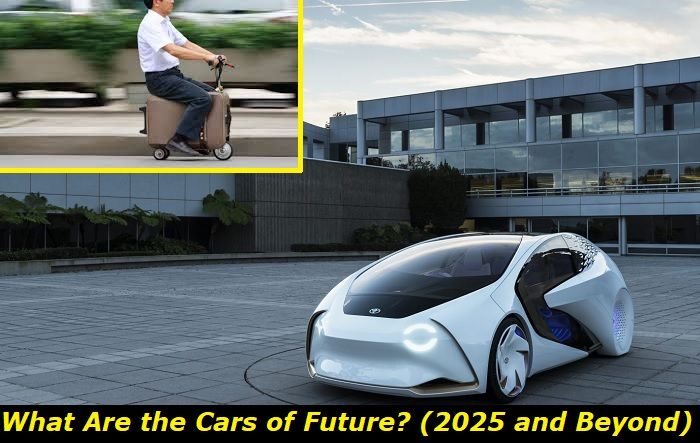BMW is a German company operating since 1916. This is one of the most renowned automakers in the world that offers luxury vehicles in all popular niches.
In this article, I will focus on outlining the most interesting engines, both new and old ones, that BMW has offered to its customers.
.jpg)
I will focus on the engine that Cararac.com has already reviewed and give links for each engine to enhance your knowledge and understanding of the technologies used in a certain machine.
BMW M52 engine
The M52 engine was manufactured from 1994 to 2001 and was installed in the most popular models like the 3-Series, 5-Series, 7-Series, and also the Z3.
There are engines with 2.0, 2.5, and 2.8 liters of displacement. All have the 6-cylinder in-line aluminum black. The engines have simple and reliable multi-point injection and also single- or double-VANOS depending on the modification.
These engines are extremely afraid of any type of overheating. Hydraulic lifters are not the most reliable parts here. The crankcase ventilation system can fall apart at high mileage. Of course, there are VANOS problems, and also the engine loves burning oil.
Anyway, these are durable BMW engines and they can go 200,000-220,000 miles depending on the modification and type of use.
Key facts and my opinion:
- Production years: 1994-2001
- Average lifespan of M52: 200,000-230,000 miles
- Fuel supply type: port injection
- Power range: 150-193 hp
- Fuel efficiency: low
- Engine block material: aluminum
- Engine reliability score: medium
- The most common problems: afraid of overheating, failing lifters, VANOS problems, oil consumption.
BMW N53 engine
The N53 series is the R6 engine family produced from 2007 to 2013 and mainly used in the European market.
This is the legendary in-line 6-cylinder engine offering two types of displacement – 2.5 or 3.0 liters. The engine was primarily used in the 3-Series and 5-Series models but we also know that the 6-Series had this powerplant under the hood.
This is a direct-injection all-aluminum engine with no turbocharger but with a double VANOS system for valve timing adjustment, the brother for the N55. The engine can produce up to 218 horsepower and offers a reliable chain-driven timing system.
The majority of these engines can easily last up to 180,000 miles, but they are not trouble-free. Among the most obvious issues are injection problems, unreliable ignition coils, and VANOS issues that can pop up at pretty low mileage.
Key facts and my opinion:
- Production years: 2006-2013
- Average lifespan of N53: 180,000-200,000 miles
- Fuel supply type: direct injection
- Power range: 190-272 hp
- Fuel efficiency: average
- Engine block material: aluminum
- Engine reliability score: medium
- The most common problems: ignition coils and spark plugs aren't long-lasting, VANOS issues, injector problems, carbon buildup on intake valves
BMW S63 Engine
The S63 engine is the sports-ready version of the N63 V8 engine offering up to 600 horsepower in stock and much more in upgraded versions.
This is an 8-cylinder V-shaped gasoline engine that offers a lot of power and high torque. It has been manufactured since 2008 and still powers some high-performance models of the German brand.
The engine has direct injection, Valvetronic and dual-VANOS for valve control, chain-driven camshafts, very efficient system of turbochargers. The engine is big and requires a lot of fuel to operate.
Some of the common problems are poor turbocharger lubrication, intensive spark plug wear, and soft aluminum in the block that leads to head bolt thread issues, especially after repairs. The timing system is not one of the most durable, so it will throw issues now and then.
This is a high-performance engine, so it’s not focused much on durability. Such engines will last, on average, 120,000 miles or can die earlier if they aren’t maintained well.
Key facts and my opinion:
- Production years: 2008-now
- Average lifespan of S63: 120,000-130,000 miles
- Fuel supply type: direct injection
- Power range: 530-600 hp
- Fuel efficiency: bad
- Engine block material: aluminum
- Engine reliability score: low
- The most common problems: oil consumption, head bolts thread problems, turbocharger lubrication issues, VANOS problems, Valvetronic issues.
BMW M57 engine
The M57 engine is a legendary diesel machine that was produced by BMW from 1998 to 2013. It was then replaced by the N57 model.
These engines were installed in almost all models of BMW that were manufactured at that time. This is the in-line 6-cylinder diesel engine offering up to 286 horsepower and wonderful torque. The engine is all-aluminum, and it offers the common-rail injection. There are two versions of displacement – 2.5 and 3.0 liters.
The engine is very reliable but still has some common problems. The issues are connected with fuel supply system contamination or timing chain stretching at very high mileage. The problem is that any repair of this engine is going to be expensive.
But, on average, the M57 engine can easily go over 300,000 miles given it’s maintained well. So, it’s very often considered to be the best diesel engine ever produced by BMW.
Key facts and my opinion:
- Production years: 1998-2013
- Average lifespan of M57: 250,000-300,000 miles
- Fuel supply type: Common Rail
- Power range: 163-282 hp
- Fuel efficiency: excellent
- Engine block material: cast iron
- Engine reliability score: high
- The most common problems: fluid leaks, oil consumption, chain issues in latest generation.
BMW N57 engine
The legendary N57 engine is the diesel in-line 6 powerplant that was produced by BMW from 2008 to 2020. It was used in almost all models that BMW manufactured within this period of time.
These are all-aluminum engines with common-rail injection and several types of turbocharging with up to three turbos in their systems. There were a ton of modifications to the N57 engines. This is one of the most massively produced diesel engines made by BMW.
This is the development of the legendary M57 engine with several great upgrades. The chains in the timing system are pretty reliable but if you need to replace them, be ready to give away a lot of money since the labor is extremely time-consuming.
The engine is reliable and can go well over 200,000 miles. Also, these diesel engines are known to be extremely fuel-efficient.
Key facts and my opinion:
- Production years: 2008-2020
- Average lifespan of N57: 220,000-230,000 miles
- Fuel supply type: Common Rail
- Power range: 204-381 hp
- Fuel efficiency: excellent
- Engine block material: aluminum
- Engine reliability score: high
- The most common problems: intake contamination, expensive chain replacement, EGR valve problems.
BMW B48 Engine
The B48 engine is the gasoline 4-cylinder series that has been manufactured since 2014 and is still in production.
There are two versions – for FWD and RWD vehicles. The engine can be found under the hoods of almost all modern BMW models. It offers up to 306 stock horsepower being a relatively small 4-cylinder unit.
The engine features direct injection, a chain-driven timing system, Valvetronic and VANOS for valve timing adjustment on both camshafts and a turbocharger of the twin-scroll type that even has a separate cooling system to prolong its life.
Interestingly, these engines were also actively used in Mini models.
The engine can show a lot of minor issues but it’s pretty reliable. Pre-2019 engines were recalled for balance-shaft bearings replacement. Also, the issues with valve seals are very common. Anyway, the B48 engine can go about 160,000 miles with no serious issues.
The B48 model was also used for hybrid powertrains. It was the base for several PHEV models with a certain limited all-electric range.
Key facts and my opinion:
- Production years: 2014-now
- Average lifespan of B48: 140,000-160,000 miles
- Fuel supply type: direct injection
- Power range: 156-306 hp
- Fuel efficiency: good
- Engine block material: aluminum
- Engine reliability score: low
- The most common problems: intensive oil consumption, poor balance shaft bearings, very demanding to oil quality
BMW B58 engine
The B58 engine has been manufactured since 2015 and is still in production. This is the in-line 6-cylinder engine that can produce up to 388 horsepower (in stock) and offers wonderful torque available at low RPM.
The engine has direct injection, VANOS and Valvetronic on both camshafts, a chain-driven timing system, and also the twin-scroll turbocharger. The turbo may be Mahle or Bosch depending on the year and modification of the engine.
Interestingly, there are no balance shafts in this engine as in the B48 which reduced the possible number of common problems. But still, the engine is not problem-free. There are common coolant leaks, issues with head gaskets, VANOS issues, and also carbon buildup due to direct injection.
The engines are still durable and can go about 200,000 miles.
Key facts and my opinion:
- Production years: 2015-now
- Average lifespan of B58: 180,000-200,000 miles
- Fuel supply type: direct injection
- Power range: 326-388 hp
- Fuel efficiency: average
- Engine block material: aluminum
- Engine reliability score: medium
- The most common problems: coolant level mysteries, head gasket failure, carbon buildup on intake valves, VANOS issues.
BMW B47 Engine
The B47 is a diesel engine with 4 cylinders known as one of the most common base engines that has been manufactured since 2015. It was also largely used in Mini models in Britain and the EU.
The engine offers Common Rail injection from Bosch that has several different modifications here. Also, it has hydraulic lifters, the timing system is driven by a chain. This engine offers up to 231 horsepower in stock.
When it comes to problems, I should outline AGR (EGR) issues, contaminated intake, timing chain stretching, and also DPF issues in high-mileage engines. Since it’s not a high-performance but rather a base engine, it will be pretty durable.
On average, these diesel engines can go up to 220,000 miles or even longer depending on the quality of maintenance.
Key facts and my opinion:
- Production years: 2014-now
- Average lifespan of B47: 210,000-230,000 miles
- Fuel supply type: Common Rail
- Power range: 116-231 hp
- Fuel efficiency: excellent
- Engine block material: aluminum
- Engine reliability score: high
- The most common problems: AGR (EGR) problems, intake contamination and power loss, timing chain issues.
Final thoughts
This is the dynamic page and it will be updated once we review another BMW engine. Fortunately, BMW is still working to make new ICE units and is ready to surprise us with even more interesting technologies.
If you have experience with any of these engines, please share it in the comments. Also, you can use the hyperlinks in the article to learn significantly more about any of the offered engines.
About the authors
The CarAraC research team is composed of seasoned auto mechanics and automotive industry professionals, including individuals with advanced degrees and certifications in their field. Our team members boast prestigious credentials, reflecting their extensive knowledge and skills. These qualifications include: IMI: Institute of the Motor Industry, ASE-Certified Master Automobile Technicians; Coventry University, Graduate of MA in Automotive Journalism; Politecnico di Torino, Italy, MS Automotive Engineering; Ss. Cyril and Methodius University in Skopje, Mechanical University in Skopje; TOC Automotive College; DHA Suffa University, Department of Mechanical Engineering






Add comment